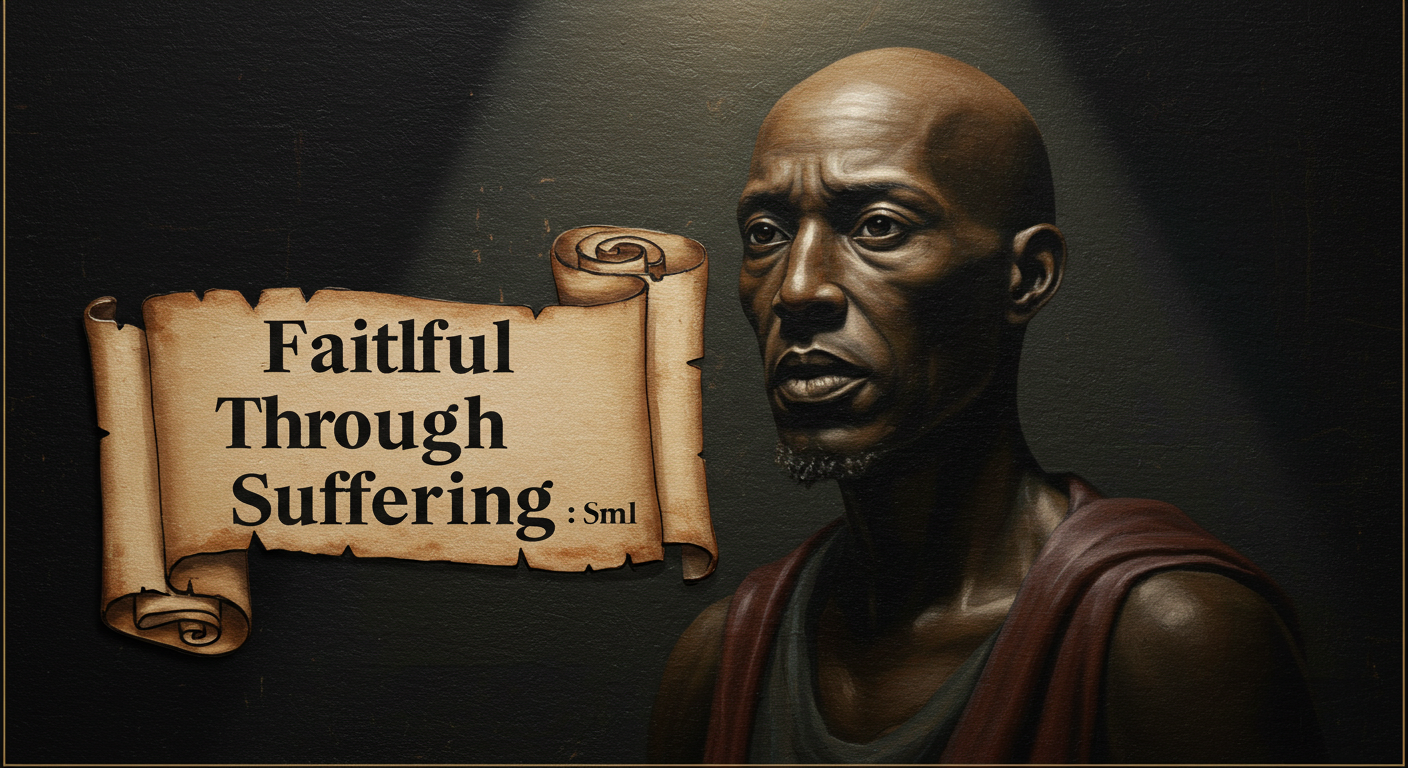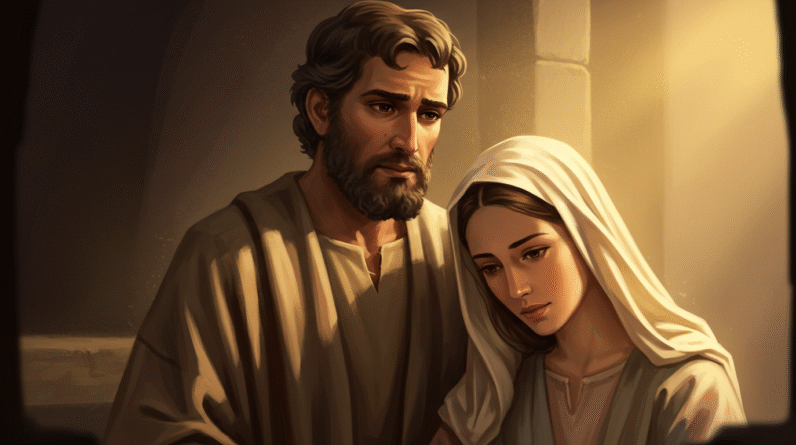Explore the unwavering faith through suffering seen in Job’s story and Paul’s reflections. Delve into timeless lessons on resilience, hope, and spiritual endurance.
Faithful Through Suffering – Job 1:20-22; 2 Corinthians 12:9-10
In the vast tapestry of human experience, the threads of suffering and faith intricately weave their way through the narratives of countless individuals in history. Among the most compelling stories is that of Job, whose unwavering faith in the face of unimaginable suffering serves as a beacon of hope and perseverance. Job’s story, complemented by Paul’s profound reflections in 2 Corinthians, paints a vivid picture of faith’s power amidst adversity. These narratives remind us that even in the depths of despair, there is a light that guides and sustains.

Introduction
In the biblical landscape, few characters resonate with as much depth and complexity as Job. Known as a man of great virtue and integrity, Job’s story begins with unmatched prosperity only to be met by sudden calamity. It’s a narrative that challenges the very foundations of faith and endurance. Job’s trials are not just ancient parables; they are timeless lessons on the human condition’s resilience. As we delve into his story and explore the teachings of Paul in 2 Corinthians 12:9-10, we encounter essential truths about faith, suffering, and the profound relationship between the two.
Job’s Story in the Bible
Job’s narrative unfolds in a land of prosperity and righteousness; a man living a life seemingly molded by divine favor. His wealth was immense, his family large and loving, and his faith unwavering. However, this prosperity became the backdrop for a celestial wager between God and Satan. Satan posited that Job’s faithfulness was contingent on his prosperity, so begins a cascade of tragedies stripping away Job’s wealth, children, and health (Job 1:20-22). Yet, despite the overwhelming loss, Job’s immediate response was to worship, stating, “The Lord gave and the Lord has taken away; may the name of the Lord be praised.”
In the face of his suffering, Job challenges conventional wisdom, especially when confronted by his friends who insist that His calamity is a consequence of personal sin. Despite their misplaced counsel, Job maintains his innocence, crying out for understanding rather than immediate relief. This narrative tension reaches a climax when God finally responds, not with explanations but with a series of questions that highlight divine sovereignty over creation.
Lessons from Job’s Life
Job’s story offers profound insights into the nature of suffering and faith. First and foremost, it teaches the importance of maintaining faith even when circumstances don’t make sense. Job’s steadfastness serves as a guidepost for those navigating their own tribulations, reminding us that faith is not a transaction—it’s a relationship.
Another lesson from Job is the humility of not always having answers. In a world that prizes certainty, Job’s willingness to question and seek deeper understanding, rather than immediate solutions, shows the power of humble inquiry over conclusive dogma. His story encourages you to embrace uncertainty and seek peace amidst life’s unanswered questions.
Lastly, Job’s interactions underscore the need for empathy and wisdom in offering support to those in distress. His friends’ erroneous assumptions remind us that sometimes the best form of support isn’t advice but presence and empathy.
Connection to Today’s World
In our modern world, where rapid change and unexpected hardships often occur, Job’s story is especially relevant. The trials faced by Job reflect the challenges many encounter today—financial loss, grief, and the struggle to understand suffering. Yet, his unwavering faith encourages resilience and hope.
Moreover, in a time of social and economic uncertainty, Job’s narrative underscores the importance of grounding yourself in faith and resilience. It beckons you to find solace not in material stability but in the enduring strength of faith and community.
As for Paul’s reflections in 2 Corinthians 12:9-10, they resonate powerfully with the notion of finding strength amidst weakness. Paul’s acceptance of his “thorn in the flesh” and his revelation that “my power is made perfect in weakness” provide a counterintuitive but profound understanding of strength. In an age where vulnerability is often seen as a weakness, Paul challenges this perception, showing vulnerability as a conduit for divine power and grace.

Key Bible Verse
“Though He slay me, yet will I hope in Him; I will surely defend my ways to His face.”
This verse encapsulates Job’s journey—a testament to hope that defies all odds. It reflects an unwavering commitment to faith and truth, even when standing before divine mystery. It calls us to a faith that does not shy away from adversity but grows firmer through trials.
Thought-Provoking Question
When faced with trials and tribulations, do you find yourself leaning on faith, as Job did, or seeking immediate solutions without spiritual reflection?
By engaging deeply with Job’s story and Paul’s teachings, you are invited to explore the profound interaction between faith and suffering, reminding you to lean on enduring truths when life’s uncertainties loom large.







